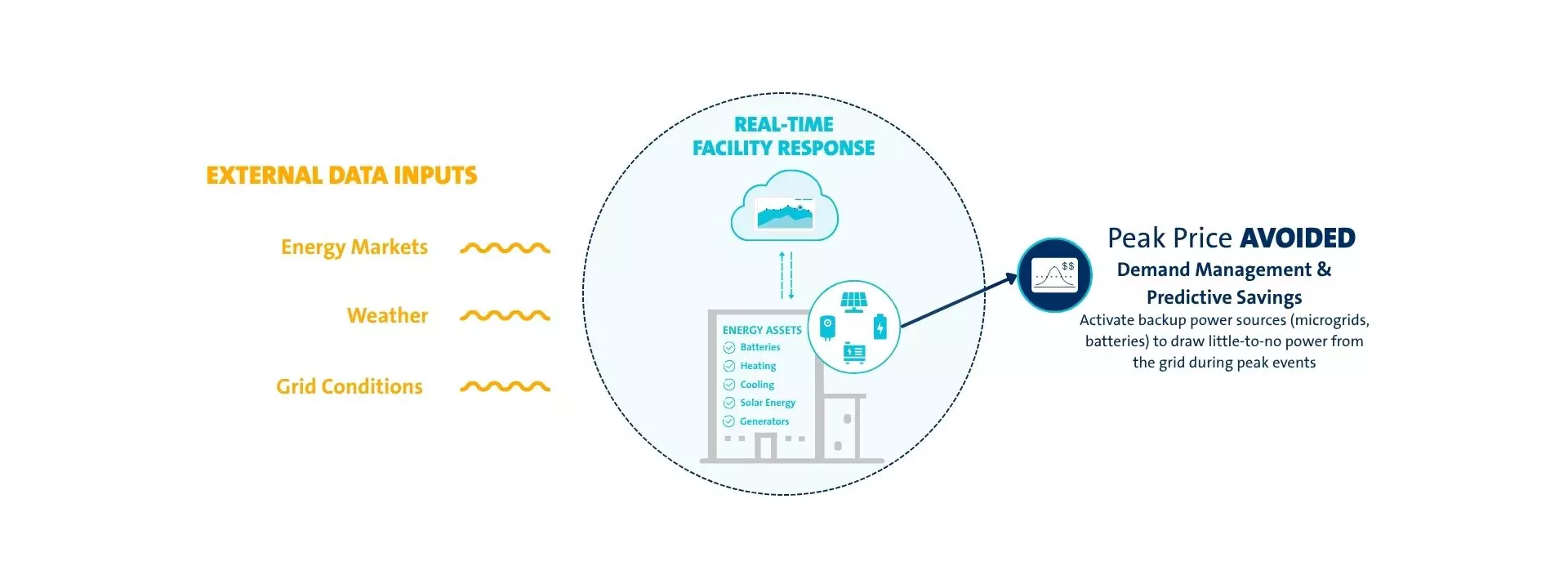What Are ICAP and Transmission Fees — and Why Do They Matter?
In many utility markets, your energy bill isn’t just based on how much electricity you use overall. You also pay Installed Capacity (ICAP) charges—fees set by your highest single-hour demand during the year—and transmission charges, which cover moving electricity from power plants to your site.
These charges are determined during just a few “peak” hours each year, often in the summer. If you’re using a lot of power during one of those hours, you could be locked into six-figure fees for the next 12 months. The challenge? Utilities don’t notify you in real time, and the charges show up months later—long after you could have done anything to avoid them.

Know When the Grid Peaks—Before the Bill Hits
Most companies have limited visibility into these events. Without timely data, you’re left paying for demand you could have reduced. Missing even a single peak can cost hundreds of thousands of dollars annually.
Veolia’s predictive platform uses advanced forecasting models—often outperforming utilities themselves—to anticipate grid peaks hours or even days in advance. When an event is likely, the system automatically reduces your grid draw by:
Dispatching batteries, generators, or thermal storage
Activating microgrids or shifting to on-site generation
Curtailing non-essential loads without affecting core operations
Optimizing demand across your entire facility in real time
In some utility markets, managing just 1 megawatt during peak events can save:
in annual ICAP charges
in annual transmission fees
These events happen more than you think—especially in the summer. Missing even one can cost you.
Turn Hidden Costs Into Predictable Savings
With Veolia, you don’t just avoid expensive surprises—you turn peak avoidance into a strategic advantage:
Greater visibility into upcoming grid risk
Full automation across all connected site assets
Seamless integration with no operational disruption
Measurable ROI and KPI tracking for ongoing performance
By making peak shaving predictive—not reactive—you protect your bottom line, improve grid resilience, and extend the life of your assets.
Contact a Representative to start avoiding peak charges—before they hit your bottom line.


